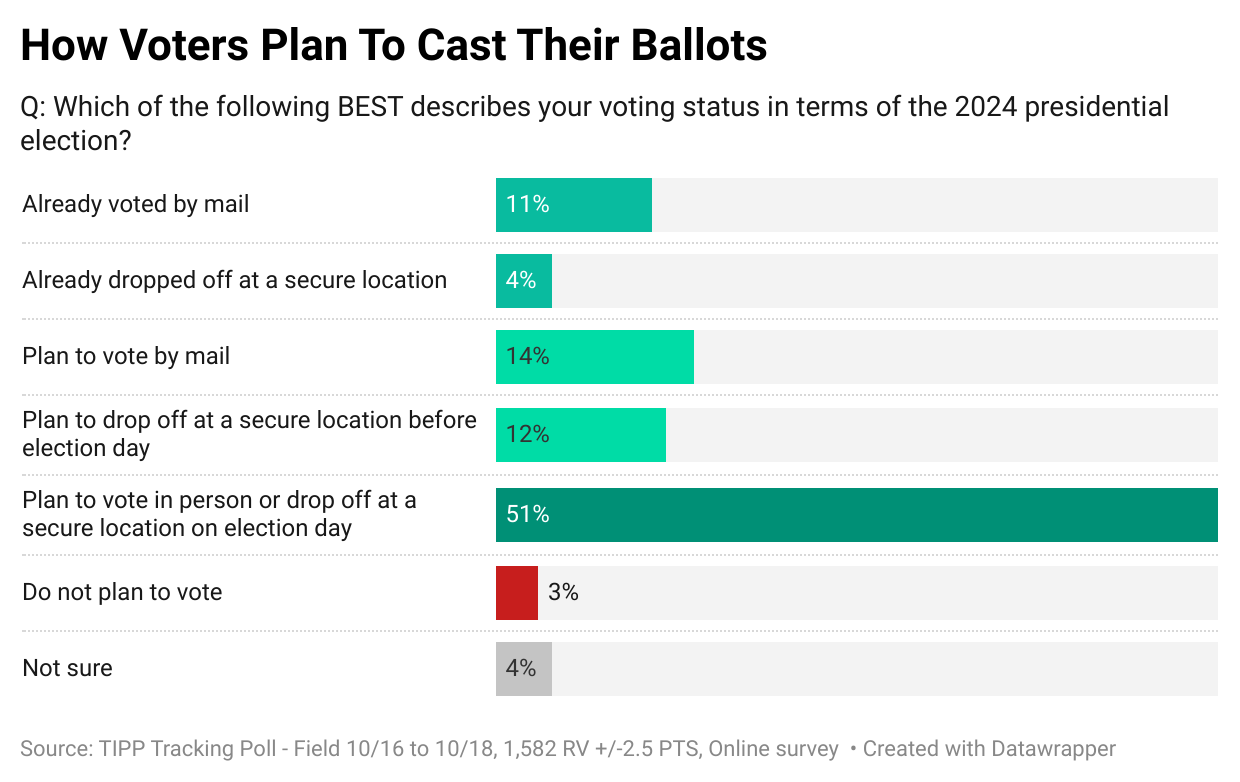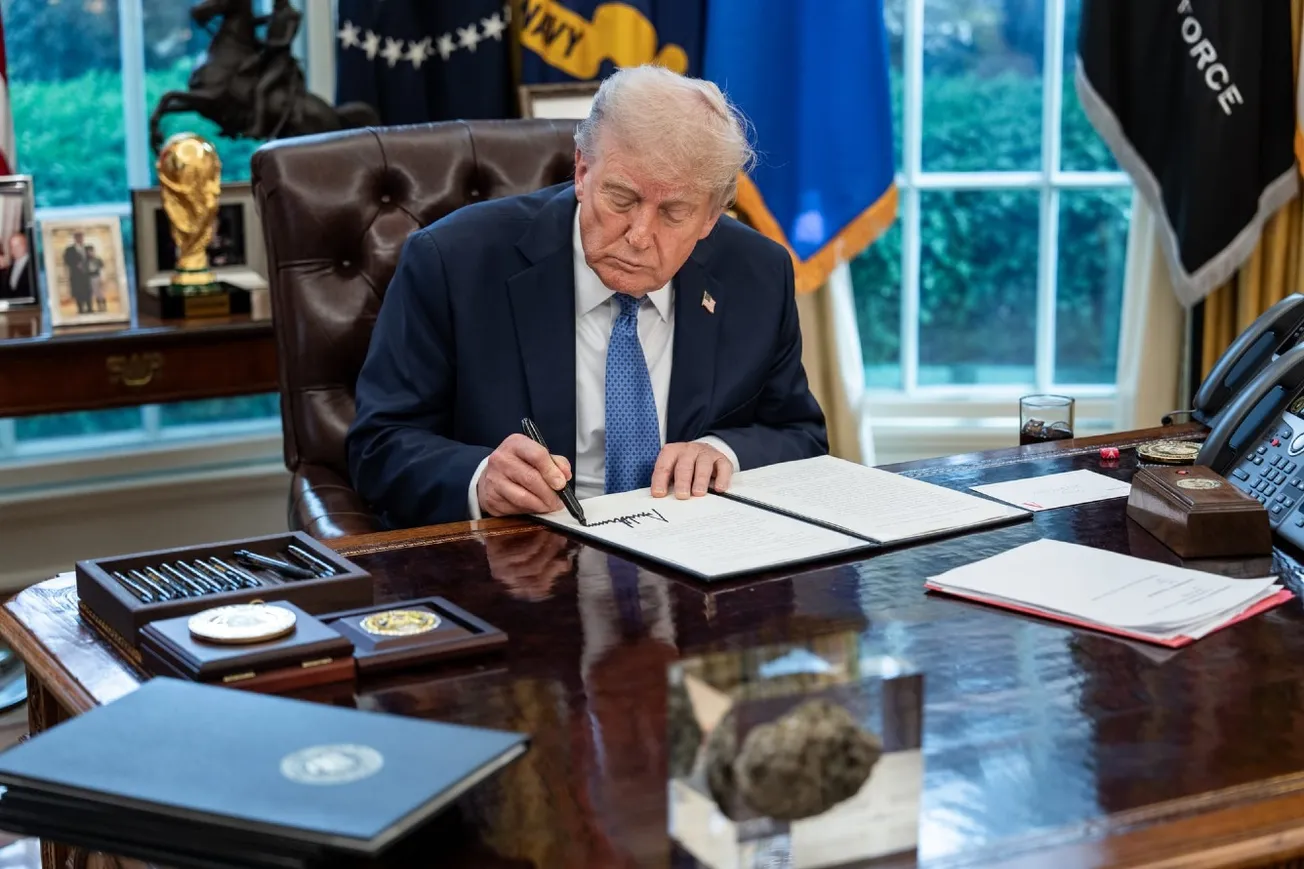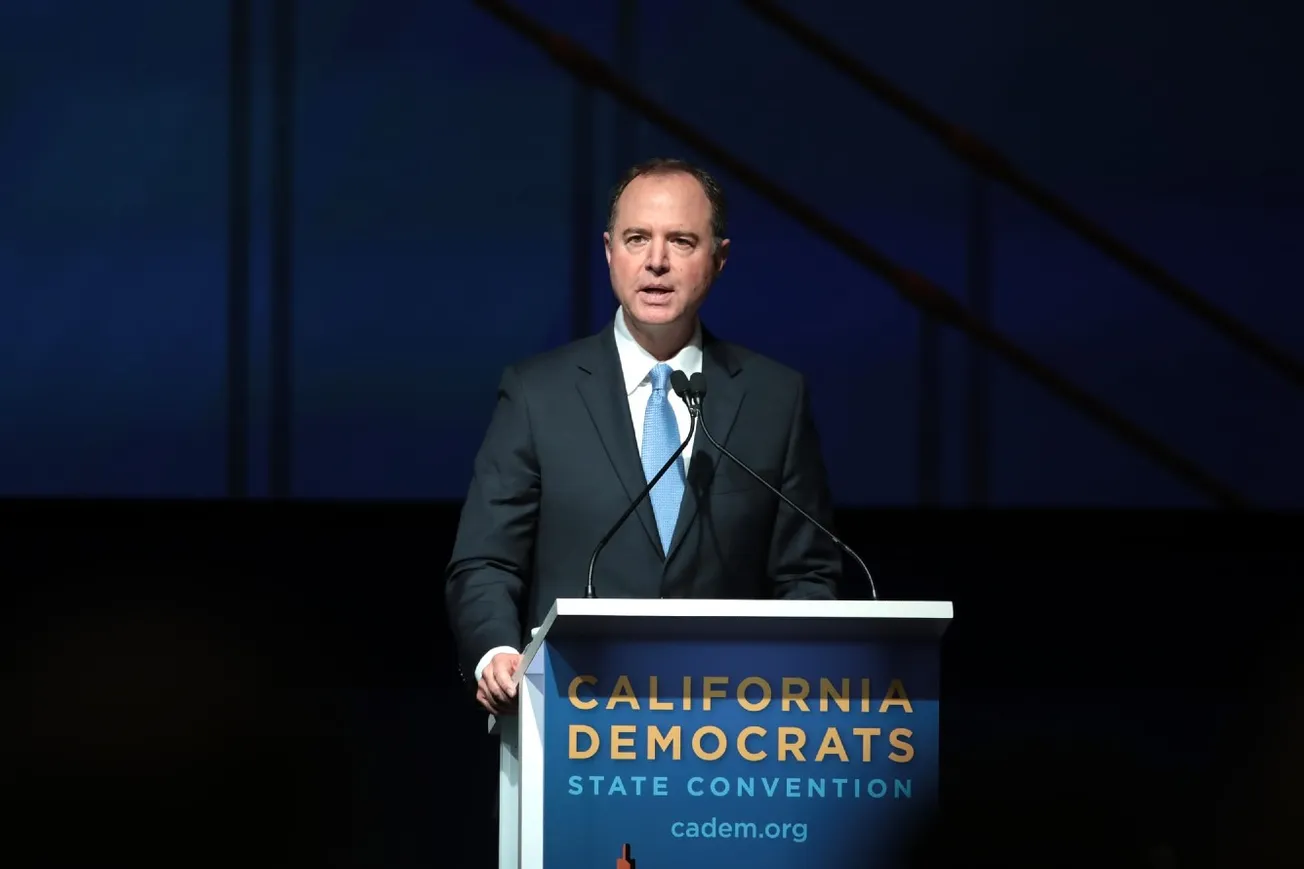Many news outlets report that the Republican Party's ground game has been effective in helping more supporters vote early in numerous states.
Although the election is still ten days away, according to research conducted by the Associated Press, voters from both parties have already returned 35,411,234 advance ballots in the 2024 general election—a total that includes mail-in votes. AP, famous as the go-to resource for all things election-related, including calling races on or past election night, maintains a tracker of voting trends by party affiliation.
America makes it extraordinarily convenient for people to vote by allowing three forms of voting: In-person early voting, mail-in balloting, and traditional, in-person election-day voting.
The GOP, urged by its nominee, former President Trump, has been asking voters to cast their ballots early, in a considerable departure from prior election cycles. Republicans have always been leaders in election-day voting; early or mail-in balloting has always been the Democrats' strength.
So, what changed in 2024? Trump has been desperate to close as many loopholes as possible to help improve election integrity. Under his urging, several GOP-run states have tightened rules around every aspect of voting—from voter registration (and the clean-up of voter rolls) to casting ballots to counting them and tabulating results. His concerns were based on what happened in 2020, a situation he wants to avoid in 2024.
2020 recap: In 2020, with COVID-19 dictating significant lifestyle changes (virtual school, work from home), Democratic operatives such as Mark Elias manipulated state laws at the last minute. States with no experience with universal mail-in ballots began to implement the system. Philadelphia had to buy two $500,000 vote counting machines with election day fast approaching using funds from 'Zuck Bucks.' Connecticut, Delaware, Massachusetts, Missouri, New Hampshire, New York, Virginia, and South Carolina all enacted legislation to expand vote-by-mail eligibility in some way.
California, Massachusetts, Mississippi, and New York extended their mail-in ballot receipt deadlines well after election day. Illinois allowed voters to send their ballots within 14 days of the election. In Nevada, ballots with unclear postmarks received by the third day following the election were deemed to have been postmarked on or before election day. If a postmark was missing in New York, the ballot was presumed to have been mailed before election day, no questions asked. So, if an unscrupulous poll worker teamed up with a corrupt postal worker and sent in boxes of ballots after election day, they would all be counted as valid.
Michigan, New Jersey, New York, and Virginia all created or expanded notice and cure processes through new legislation. Vote curing occurs when the signature on a mail-in ballot is unclear or missing. Voting districts then notify voters and allow them ample time to correct these errors. The correction can happen even after election day. According to the National Conference of State Legislatures, 24 states require election administrators and officials to conduct this ballot-curing process. The remaining states typically do not count ballots that need correction.
When the AP called the 2020 election for Joe Biden, liberal NPR analyzed the results and showed how close the Trump-Biden match was: "Just 44,000 votes in Georgia, Arizona, and Wisconsin separated Biden and Trump from a tie in the Electoral College." With over 6.607 million votes cast in these three battleground states, an error of just 0.6 percent can yield 44,000 votes and swing an election.
The judicial system has been slow to address election integrity on its merits, primarily ruling on technical issues such as standing when a suit is brought before a court. Friday was a rare exception when a three-judge panel of the Fifth Circuit ruled that the Republican Party of Mississippi was correct in demanding that election officials no longer accept ballots after an election. While the decision has no direct implication on the 2024 election, potential lawsuits after November 5 could draw on the language in the judges' ruling.
Back to early in-person voting: Trump understood that a far more straightforward way to achieve results would be to take advantage of early voting. This uniquely American innovation allows people to beat the lines on election day and vote in person at their local precinct with all the standards of election integrity in place. Of course, with more Republicans voting early, it would mean that they would be "cannibalizing" the election-day vote totals. As a practical matter, it didn't matter if election-day totals were lower. What was critical was that people voted. Trump's stress on early voting eliminated the possibility of lost votes when voters intending to cast their ballot on election day couldn't somehow go to the election booth on November 5 (for weather, sickness, or other reasons).

In two battleground states, the GOP is running away with the early vote, establishing solid leads that, if held, can swing the election to the Republicans. Consider Arizona, where the GOP leads by over 75,000 votes. In Nevada, the lead is about 45,000 votes.
According to Forbes, of the 25 states that track and report party registration among early voters, 43% are Democrats, and 35% are Republicans as of Wednesday, according to the University of Florida Election Lab data - showing only an 8% difference between the two parties.
For comparison, in 2020, 53% of early voters were Democrats, and 25% were Republicans in the 17 states that year that tracked and reported party affiliation at the time—a whopping 28% difference in favor of the Democrats.
In several states, the difference is narrow enough that the GOP's traditional election-day advantage could help Trump carry the state.









